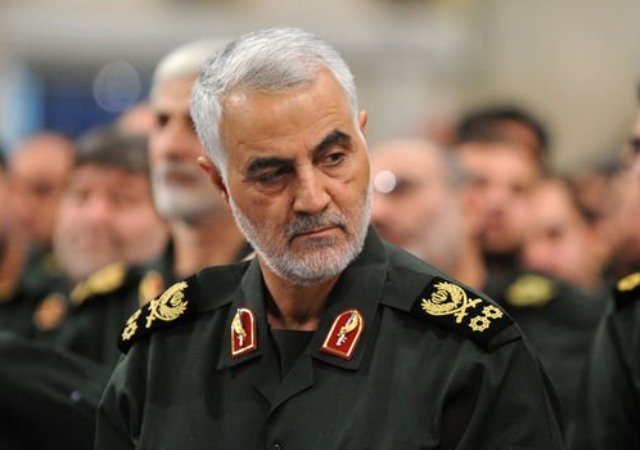The Iranian ambassador to the United Nations described the killing of one of his country’s top generals as an act of war, US media reported late Friday.
The death of Quds Force commander Major General Qasem Soleimani in Baghdad was the most dramatic escalation yet in spiralling tensions between Iran and the United States, despite President Donald Trump’s insistence he did not want war.
But, speaking to CNN late Friday night, Iranian ambassador Majid Takht Ravanchi said: “In fact was an act of war on the part of the United States and against Iranian people.”
“Last night they (the US) started a military war by assassinating by an act of terror against one of our top generals. So what else can be expected of Iran to do? We cannot just remain silent. We have to act and we will act,” he said.
“We can’t just close our eyes to what happened last night. Definitely there will be revenge, a harsh revenge.”
“The response for a military action is a military action. By whom, by when, where? that is for the future to witness,” he ended the interview by stating.
The remarks follow Trump, speaking on Friday night to Evangelical supporters in Miami, saying that Soleimani was planning “a very major attack” and that he had been preparing multiple “attacks against Americans”.
Meanwhile, the British government on Saturday advised UK nationals to avoid travelling to Iraq and Iran in face of heightened tensions in the Middle East following the lling of the top Iranian commander in Baghdad.
“Following the death of Qasem Soleimani and heightened tensions in the region… We now advise British nationals against all travel to Iraq (and) we now advise against all but essential travel to Iran,” Britain’s Foreign Office said in a statement.
“The first job of any government is to keep British people safe,” the statement said.
“Given heightened tensions in the region, (we) now advise people not to travel to Iraq, with the exception of the Kurdistan Region of Iraq, and to consider carefully whether it’s essential to travel to Iran. We will keep this under review.”
On Friday, the US military killed Soleimani in an air strike outside Baghdad international airport that shocked the Islamic republic and sparked fears of a new war in the Middle East.
The Islamic Revolutionary Guard Corps confirmed the death of the commander of its Quds Force foreign operations arm, and Tehran’s clerical leadership promised “severe vengeance… in the right place and time”.
In its statement, the British Foreign Office urged UK nationals in the region to “remain vigilant and monitor the media carefully.”
Soleimani — long seen as a deadly adversary by the US and its allies — was one of the most important power-brokers across the region, setting Iran’s political and military agenda in Syria, Iraq, and Yemen.
AFP






















































